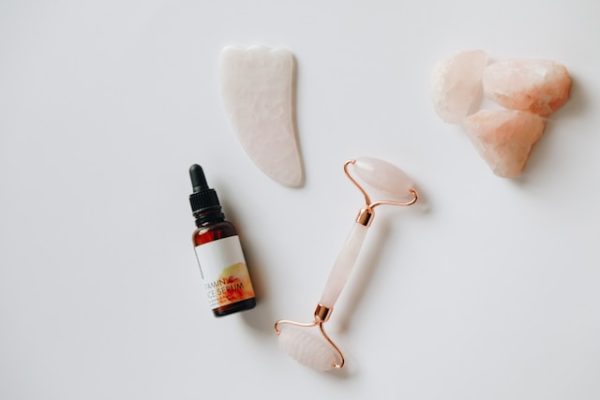As we age, our bodies start to change physically and chemically. Hair and skin are often the most susceptible to early signs of these changes, causing many to seek effective anti-aging treatments that slow down or reverse these unwanted results.
Whether you are looking for new ways to boost your beauty routine using your favorite TYPEBEA products or want to find solutions to revitalize your skin and hair, it may be worthwhile exploring the world of copper and collagen peptides, a popular and ever-growing trend in the beauty industry.

Copper and Collagen Peptides
Copper peptides are one of the most popular beauty trends currently in the industry. Peptides are naturally occurring amino acids that aid in the production of collagen and elastin, two types of connective tissues that support smooth and firm skin.
Collagen and elastin are naturally lost over time due to age and certain lifestyle habits, such as smoking and excessive sun exposure. Once these connective tissues have been lost, specific skin care products may help restore them to your body. However, no beauty product can fully restore collagen and other connective tissue once they disappear.
Peptides easily bind with copper enzymes, forming a combination officially known as GHK-Cu. These polypeptides are believed to stimulate collagen growth, addressing issues like fine lines, enlarged pores, age spots, and poor hair health.
Collagen peptides are the hydrolyzed form of collagen, a natural structural protein found throughout the skin matrix and all connective tissues, including the tissue surrounding hair follicles. The smaller molecules in collagen peptides make them easier to absorb into the bloodstream.

The Benefits of Copper
The advantageous ingredients found in copper peptides may promote the overall health of hair and skin in various ways.
Skin
The benefits of copper peptides in skin care are well documented. They effectively work below the epidermis, the skin’s outer layer. This is primarily why peptides can help generate elastin, which is found in collagen deep within the skin tissue.
Various studies have revealed a number of promising skin-aging benefits. First, studies show that copper peptides can reduce the appearance of fine lines and wrinkles by increasing collagen proteins. These proteins help plump up the skin, reducing the appearance of lines.
Copper peptides stand out from other types thanks to their ability to potentially repair skin and even out skin tone. They are thought to remove damaged connective tissue from the skin and replace it with new and healthy tissue. This can reduce sunspots, acne scars, and uneven skin tone.
Finally, copper peptides may also possess antioxidant properties that can reduce inflammation and prevent further skin damage. GHK-Cu has also been reported to lower the risk of skin infections.
Hair
A 2018 research review found that copper peptides may help to increase blood circulation to your skin, helping to maintain the tissue found in blood vessels. These same tissues are found in hair follicles, which can be stimulated by copper peptides to ensure they receive adequate oxygen and nutrients to promote new and healthy hair growth.
Furthermore, if you suffer from unwanted hair loss, this may be due to a shortened hair growth cycle, which can be the result of faulty hair follicles, hormones, or other issues. According to a 2007 study, copper peptides were found to extend this growth cycle, allowing for more time before hair naturally sheds.
Alongside promoting new hair growth, copper peptides could potentially thicken existing hair by enlarging hair follicles. However, more studies are required to fully establish whether these benefits exist. Finally, Copper is a micronutrient needed to produce melanin in the body. Melanin is a compound responsible for the color of hair, eyes, and skin.

The Benefits of Collagen
Many of the reported benefits of collagen peptides for hair are the result of orally ingesting them, either through supplements or a healthy natural diet. Collagen peptides don’t necessarily influence hair growth or loss but rather impact the health of the follicle for better and healthier results. Topical application of collagen, which is typically through shampoos, conditioners, and serums, is more focused on adding moisture and the benefits of the amino acids in protecting hair and skin. However, these effects are not as strong as those found through supplements or diet.
Because hair is primarily made from protein keratin, amino acids like those found in collagen aid in building keratin for strong and healthy hair. Topical application of collagen peptides will help to support, strengthen, and hydrate the hair that is already present.
Although collagen peptides don’t directly impact hair growth, they do positively influence the health and function of the growing environment. Having collagen present during the hair’s growth stage gives the hair bulb added nourishment, aiding in stronger hair production.
While many factors influence the appearance of hair, including hydration levels, breakage, and general shaft health, some research suggests that collagen peptides can impact the appearance of hair using antioxidant support. These peptides fight free radical skin and hair shaft damage, which may help reduce hair loss, mitigate thinning, and prevent early graying. However, more research is needed to fully understand the antioxidant benefits of collagen peptides.

